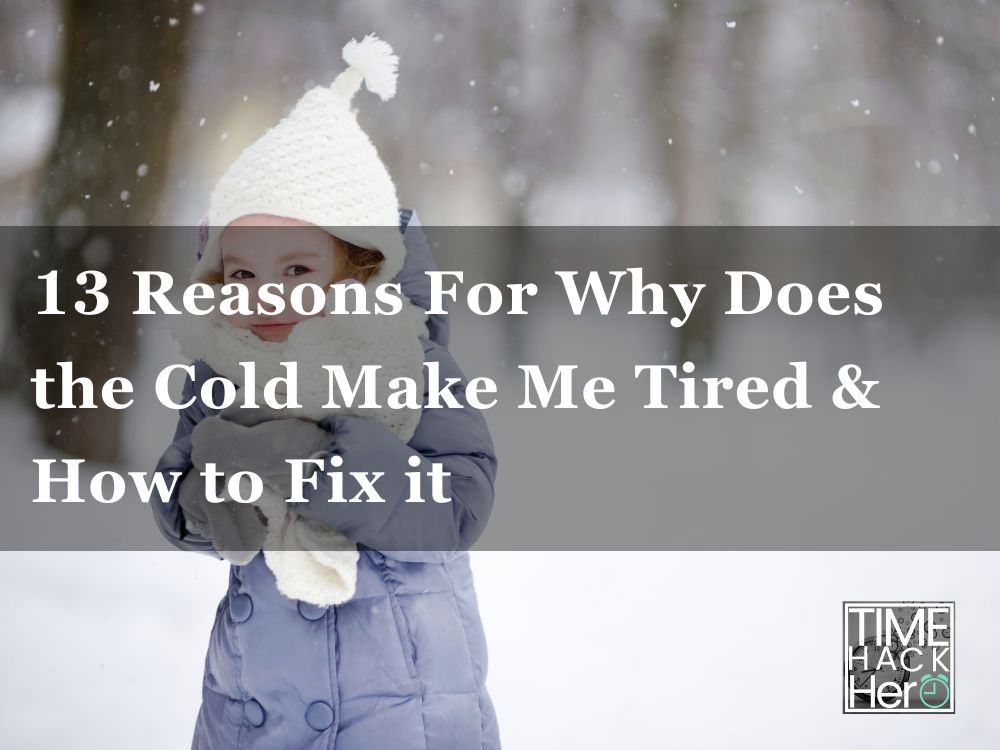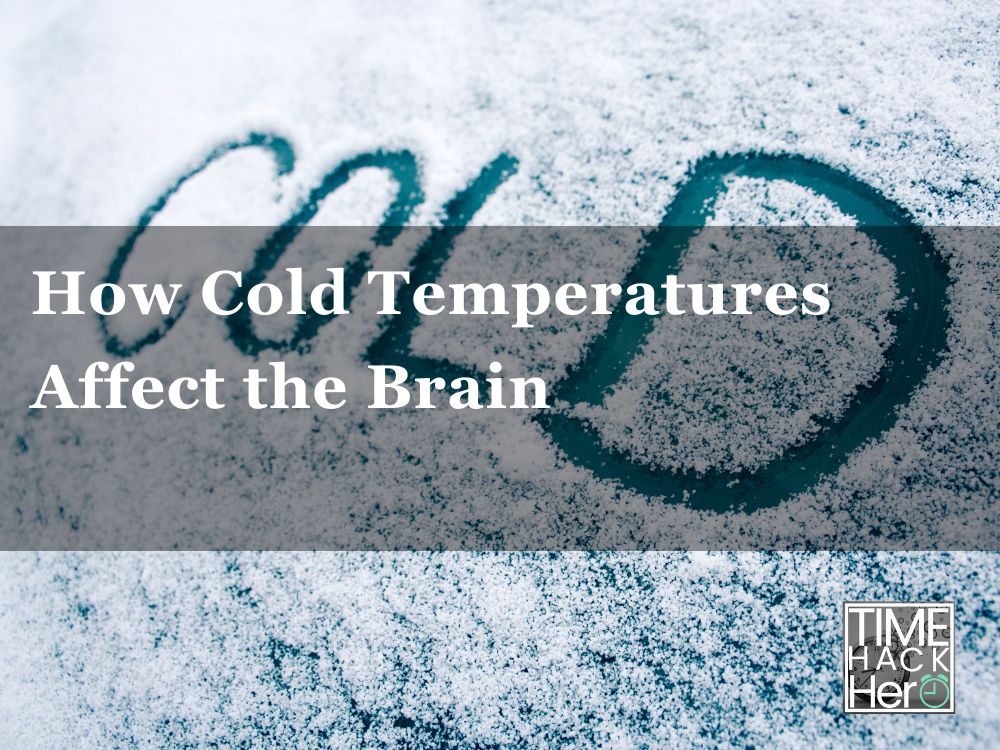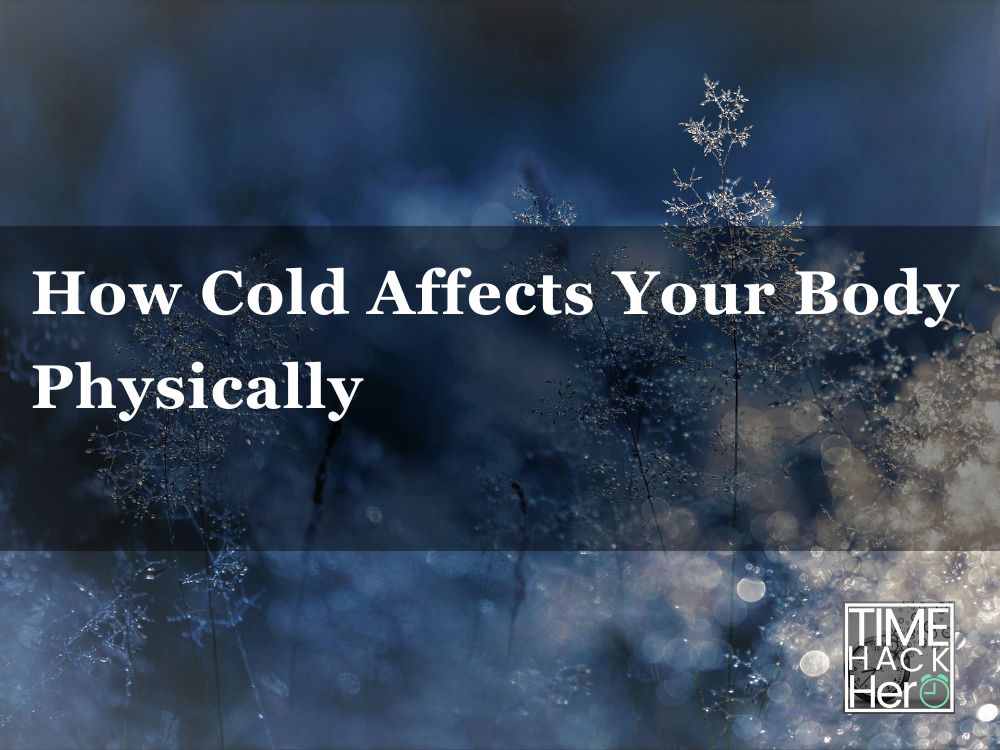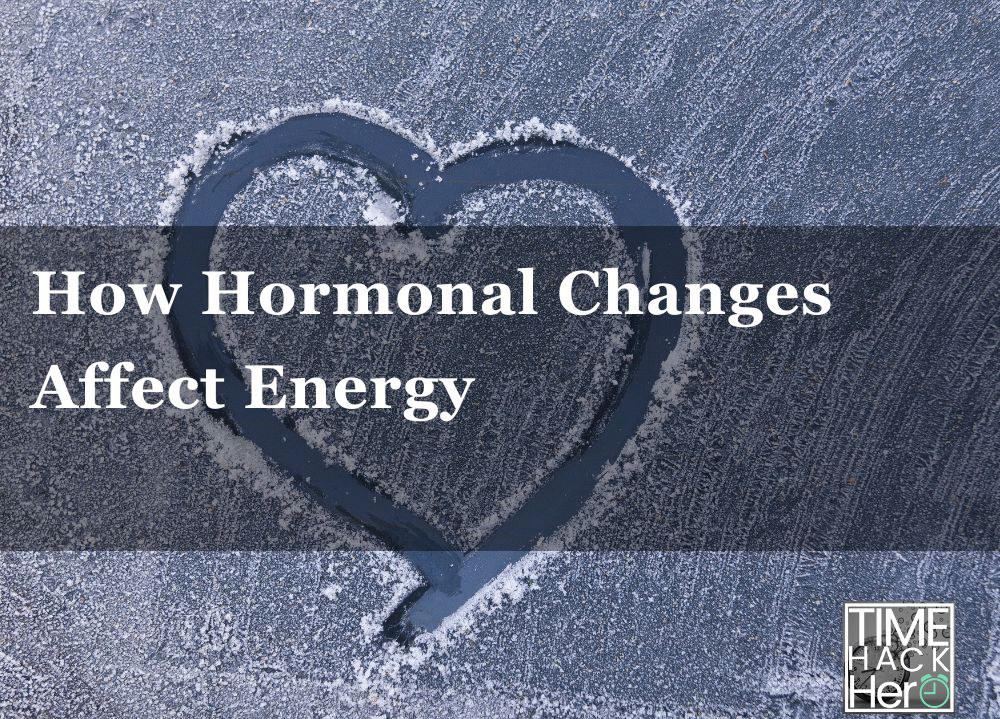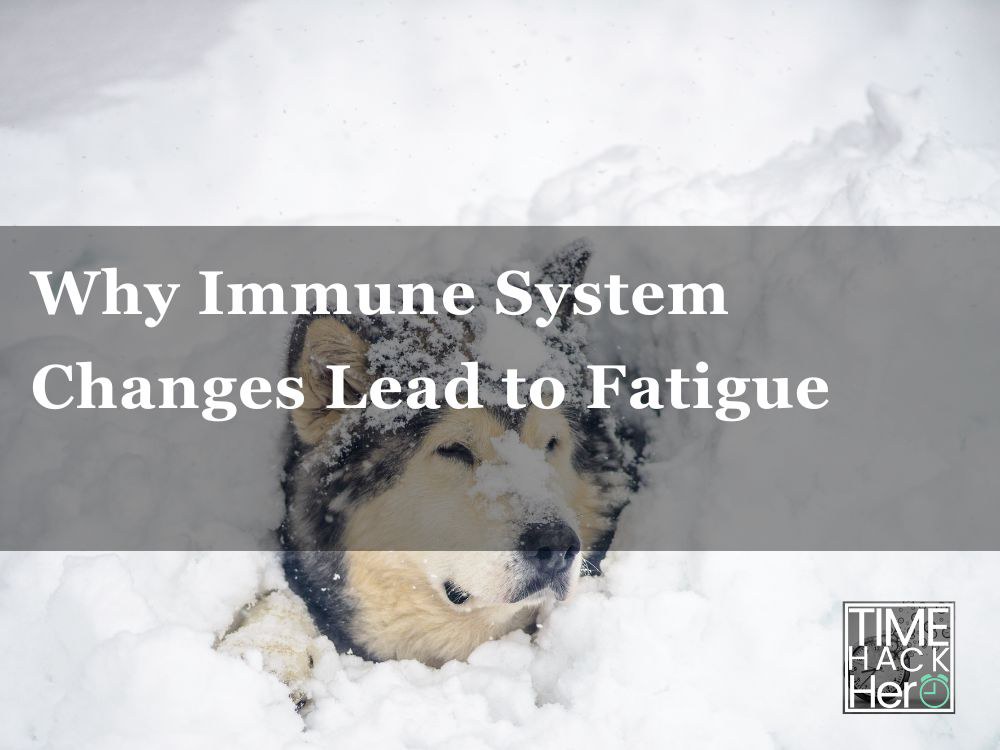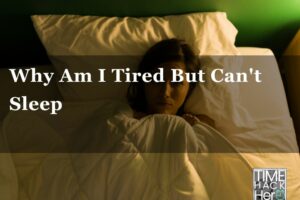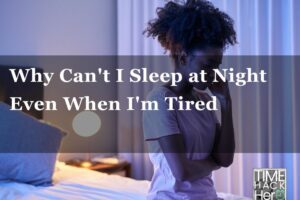Feeling an urge to nap when it’s chilly outside is incredibly common. If colder weather leaves you feeling drained and drowsy, you’re not alone. There are a few key scientific reasons why exposure to cooler temperatures can zap your energy levels.
Table of Contents
Is This Normal?
Yes, becoming tired in cold conditions is a normal physiological response. Your body naturally works harder to regulate temperature and maintain inner warmth when it’s chilly. This extra effort, along with other cold-related body changes, makes feelings of fatigue totally normal. However, constant exhaustion may be a clue you need to take better cold precautions.
13 Reasons Why Does the Cold Make Me Tired?
There are a few key reasons winter weather can leave you feeling fatigued.
| Mechanism | Explanation | Effect |
|---|---|---|
| Increased melatonin | Cold exposure boosts melatonin secretion | Feeling drowsy |
| Lower serotonin | Cold reduces serotonin activity in the brain | Fatigue, negative mood |
| More thyrotropin | Cold increases TSH, which lowers metabolism | Tiredness to conserve energy |
| Lower body temperature | Body heat drops slightly in cold environments | Sluggishness and shivering |
| Cold diuresis | Vasoconstriction increases blood pressure, more fluid excreted | Dehydration fatigue |
| Impaired circulation | Constricted blood vessels reduce blood flow | Sleepiness, muscle tiredness |
| Muscle tension | Shivering and tensing muscles to produce heat | Exhaustion |
| Less orexin | Cold inhibits wakefulness-promoting orexin | Increased sleepiness |
| Adrenaline spikes | Adrenal glands release more adrenaline | Anxious fatigue |
| Reduced thyroid hormones | Thyroid hormone decreases to conserve energy | Lethargy |
| High immunoglobulins | More immunoglobulins released to boost immunity | Weakness and tiredness |
| Increased cytokines | Cytokines rise to regulate immune responses | Fatigue |
| Impaired T cells | Cold inhibits T lymphocyte function | Diversion of energy to attempt to increase immunity |
How Cold Temperatures Affect the Brain
Exposure to cold conditions initiates changes in the brain that can make you feel sluggish and sleepy. Here’s an overview:
1. Melatonin
Melatonin is a hormone that regulates sleep. It is produced by the pineal gland in the brain.
Cold exposure causes the pineal gland to secrete more melatonin. This makes you feel drowsy. Melatonin levels naturally increase at night to promote sleep, but cold triggers higher production at all times of day.
2. Serotonin
Serotonin is an important neurotransmitter that influences mood, appetite, digestion, sleep, memory and happiness.
Cold weather decreases serotonin circulation in the brain. With less serotonin activity, you may experience lower energy, negative mood, and daytime sleepiness.
3. Thyrotropin
Thyrotropin, also called thyroid stimulating hormone (TSH), is produced by the pituitary gland. TSH stimulates the thyroid to secrete thyroid hormones that control metabolism.
Cold temperatures lead to higher TSH levels. Increased TSH causes more thyroid hormone to be released, lowering metabolic rate and body temperature to conserve energy, which can induce tiredness.
How Cold Affects Your Body Physically
In addition to acting on the brain, cold exposure also exerts physical effects on the body that sap energy reserves:
4. Lower Core Temperature
In cold environments, your body works hard to maintain thermal equilibrium and prevent heat loss. But core body temperature can still decrease slightly.
A drop in internal temperature leaves you feeling tired and sluggish. Your body aims to conserve energy to warm itself until core temperature is restored.
5. Cold Diuresis
Cold triggers vasoconstriction in blood vessels, which increases blood pressure. Your kidneys compensate by excreting more fluid, leading to dehydration.
Dehydration causes fatigue as your heart works harder to pump thickened blood through constricted vessels.
6. Impaired Circulation
Blood vessels constrict in the cold to preserve body heat. This restricts blood flow and reduces delivery of oxygen and nutrients to tissues.
Poor circulation leads to sleepiness and muscle tiredness. Cold essentially works against your cardiovascular system.
7. Muscle Tension
Shivering and tensing muscles to generate heat requires significant energy expenditure. Maintaining muscle tension against cold saps strength.
Constant muscle exertion leads to exhaustion. You have less capacity for any other physical activity.
How Hormonal Changes Affect Energy
Cold also instigates release of key hormones that can leave you feeling drained:
8. Orexin
Orexin, also called hypocretin, is a neurotransmitter that promotes wakefulness. It is produced by the hypothalamus.
Cold exposure inhibits orexin neurons, reducing orexin levels. This contributes to feeling sleepy when cold.
9. Adrenaline
The adrenal glands release more adrenaline and noradrenaline during cold stress as part of the sympathetic “fight or flight” response.
Adrenaline spikes can leave you feeling fatigued and anxious. Your body is working on overdrive.
10. Thyroid Hormones
As mentioned, TSH stimulates the thyroid gland to produce T3 and T4 hormones to regulate metabolism.
In cold conditions, thyroid hormones are reduced, which lowers metabolic rate to prevent heat loss. This leads to tiredness and sluggishness.
Why Immune System Changes Lead to Fatigue
Fighting off cold also drains you through its effects on the immune system:
11. High Immunoglobulin Levels
Immunoglobulin proteins in the blood rise when you have an infection. Your body also releases more immunoglobulins to improve immunity in the cold.
Elevated immunoglobulins increase the likelihood of feeling tired and weak. Your immune system is working overtime.
12. High Cytokine Production
Cytokines like IL-1, IL-6 and TNF-α regulate immune responses. They increase when you get sick and during cold exposure.
Excess cytokines can cause fatigue and lethargy. Your immune activity is heightened.
13. Impaired T Cell Function
Cold inhibits the activity of T lymphocytes. These white blood cells normally destroy infected or cancerous cells.
With T cell function reduced, your immune defenses decline, which your body combats by diverting energy to try to boost immunity back up.
Other Variables That Worsen Cold-Induced Fatigue
A few other factors beyond cold itself can intensify tiredness and sleepiness in cold environments:
- Dark winter days – Less sunlight exposure affects circadian rhythms.
- Heating bills – Cold financial stress mentally and physically drains you.
- Comfort food cravings – Carb- and sugar-heavy comfort foods lead to energy crashes.
- Lack of exercise – Bundling up makes it harder to stay active.
- Dry air – Indoor heat saps moisture from the air, which can dehydrate you.
- Vitamin D deficiency – Less sun in winter reduces natural vitamin D synthesis.
- Depression – Short winter days trigger seasonal affective disorder in some.
- Isolation – Cabin fever and loneliness from staying indoors burns you out.
- Illness – Colds and flu thrive in winter and leave you wiped out.
9 Tips to Combat Cold-Induced Fatigue
If the cold continues to zap your energy, what can be done? Here are some tips to help overcome chill-related tiredness:
Dress in Layers
Wearing insulated, layered clothing helps prevent body heat loss that leads to fatigue. Use breathable base layers, fleece mid-layers for insulation, and wind/waterproof outer shells.
Stay Hydrated
Dehydration exacerbates cold’s effects on sleepiness. Drink plenty of warm and hot fluids like herbal tea, broth, and water. Avoid alcohol and caffeinated beverages which can dehydrate.
Eat Warming Foods and Soups
Choose energizing foods and spices like ginger, garlic, root vegetables, nuts, oats, legumes, and lean proteins to help counteract cold-provoked tiredness. Warm soups also restore warmth.
Take Vitamin D
Since we get less sun exposure in winter, supplementing with Vitamin D can help combat seasonal affective disorder (SAD) and restore lagging energy levels. Discuss dosage with your doctor.
Soak in Warm Baths
Relaxing in a warm (not hot) bath helps bring your body temp back up. This signals your brain to restore normal blood circulation. The soothing warmth can be re-energizing.
Seek Out Heat Sources
Sit near heat vents, wrap up in a blanket, or sip a hot drink. Finding small ways to warm your body helps counter the tiring cold. But avoid getting overheated which strains the body too.
Exercise Indoors
Staying active with indoor workouts like yoga, bodyweight exercises, cardio machines, etc. generates internal body heat while also fighting fatigue. Just dress warmly and monitor exertion.
Check Your Iron Levels
Anemia from low iron is a common cause of inexplicable chronic fatigue. Get your blood levels tested and supplement if needed, under medical guidance.
Use a Humidifier
Cold, dry air can dry out nasal passages and make breathing more difficult. A humidifier adds moisture to the air and improves respiratory comfort for better sleep and energy.
When To See A Doctor
In some cases, excessive fatigue during winter may be linked to seasonal affective disorder or other medical issues. See your physician if:
- Fatigue persists daily for over 2 weeks
- Fatigue is severe and interferes with daily life
- Fatigue worsens despite lifestyle improvements
- You experience changes in appetite, sleep and mood
- Cold symptoms and illness last longer than 2 weeks
Underlying health problems like an underactive thyroid, anemia or depression could be exacerbating winter tiredness. Discuss any ongoing fatigue with your doctor.
Conclusion
Mild tiredness due to cold exposure is harmless for most people. However, if the cold constantly leaves you feeling drained, it’s worth evaluating your layers, activity levels, diet, and indoor conditions for improvements that could help boost your energy reserves. Staying cozy will keep you from feeling drowsy. Pay attention to any signs of consistent fatigue or chronic tiredness during cold snaps. With some tweaks to your cold-weather practices, you can better maintain energy as the temperature drops.
Frequently Asked Questions
Is it okay to take short naps when it’s cold out to recover energy?
Short 15-20 minute power naps can safely boost alertness and performance without leaving you groggy. Just don’t nap too close to bedtime or for longer than 30 minutes to avoid disrupting your sleep cycles.
Are there certain times of day when the cold has less of an effect on energy levels?
Yes, the cold likely has less of an impact on alertness in the morning when circadian rhythms naturally promote wakefulness. Late afternoon and evening cold exposure may exacerbate tiredness more.
Can exercising outdoors help provide an energizing boost on cold days?
Yes, exercise generates body heat and releases endorphins that can temporarily overcome chill-related fatigue. Just dress very warmly, stay hydrated, monitor exertion level, and be cautious of icy conditions.
Should I consume more calories during cold weather to fuel energy levels?
Maybe. Listen to your hunger cues. Eating a little more of cold-fighting foods like nuts, oats and lean proteins can help, but avoid drastic increases that lead to weight gain.
Is feeling cold all the time a sign of iron deficiency or thyroid issues?
It could be. Chronic cold sensitivity, fatigue and temperature regulation issues can indicate hypothyroidism or anemia. It’s worth getting bloodwork done to check your levels if coldness persists.

